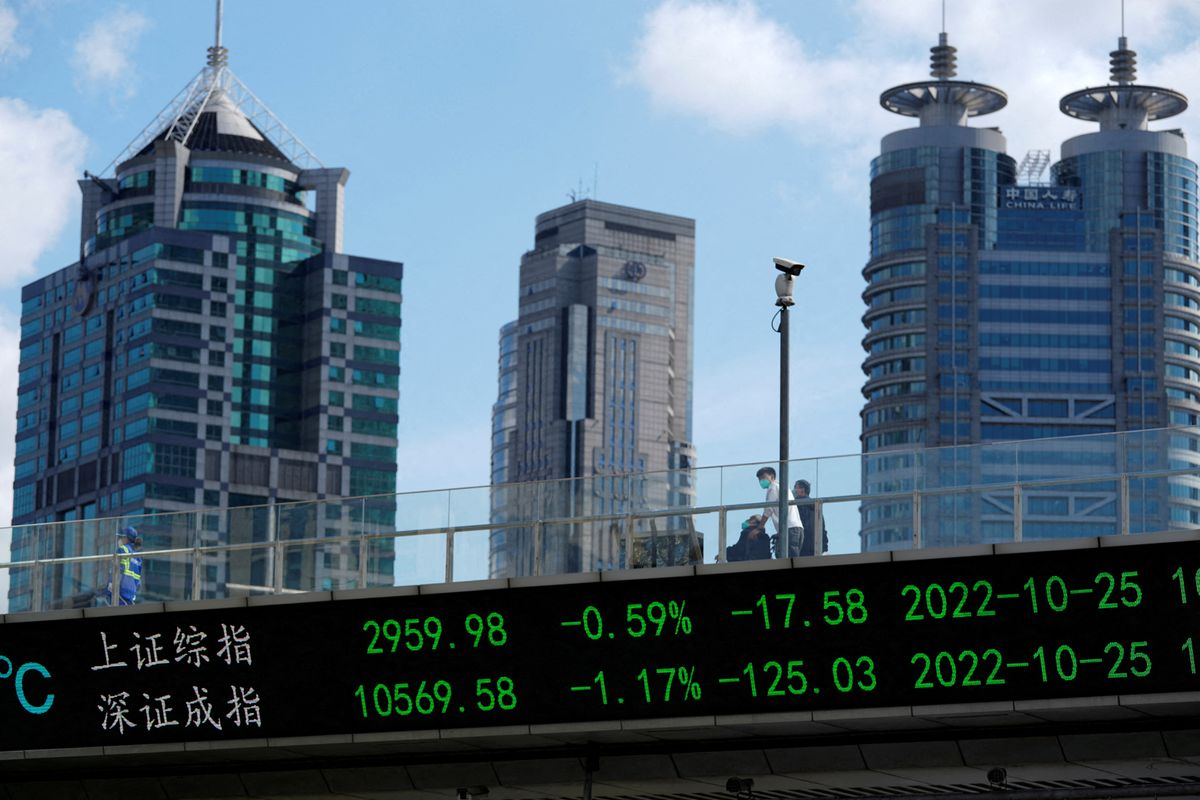China's crackdown on corruption continues
In late 2021, China kicked off an investigation to weed out corruption in the country's financial sector.

A few minutes every morning is all you need.
Stay up to date on the world's Headlines and Human Stories. It's fun, it's factual, it's fluff-free.
The backstory: In late 2021, China kicked off an investigation to weed out corruption in the country's financial sector, worth around US$60 trillion. This is part of a broader, yearslong anti-graft campaign under President Xi Jinping. The same year, China's largest bad-debt manager, Huarong, faced a series of scandals and suffered massive losses. It was so bad that the company's ex-chairman was executed for bribery and other crimes. He was accused of taking bribes totaling 1.79 billion yuan (US$278 million) over a decade.
More recently: Last week, the Chinese government launched an investigation into Liu Liange, the former chairman of the Bank of China. According to the Central Commission for Discipline Inspection (CCDI), Liu is suspected of "serious violations of discipline and law." This is a big deal because it's been years since one of China's "Big Four" state-owned banks has had a top executive under investigation. But it's not just the Bank of China that's being looked into. In fact, more than 30 state-owned companies, including five financial firms that have already been in the crosshairs, are currently being investigated.
The development: Some insiders spilled the beans that high-ranking officials from the China Banking and Insurance Regulatory Commission (CBIRC) and the CCDI recently held a closed-door meeting last Friday with execs from at least six state-owned banks.
The message was clear: the crackdown on corruption in finance isn't slowing down anytime soon. The CBIRC and CCDI have emphasized that they're ramping up their efforts to stamp out corruption in the financial industry and have warned other bankers to learn from Liu's case. They also reminded everyone to play by the rules and strengthen their self-discipline.
Key comments:
“As far as we know, execution is relatively rarely imposed for economic crimes” in China, said Jerome A. Cohen, a law professor at New York University, when China convicted Lai Xiaomin, the former chairman of China Huarong Asset Management, for accepting bribes and sentenced him to death in 2021. “Corruption in this case, and at a major company, was of a magnitude that could not be ignored if the death penalties is to have maximum deterrent effect.”
“The government needs to fix the fundamental problems, such as giving more banking licenses to non-state capital, establishing market-oriented decision-making processes and cultivating real bankers rather than politicians,” said Hu Xingdou, an economics professor at the School of Humanities and Social Sciences at Beijing Institute of Technology in 2015.
“For China, we just have to wait for the government to punish whoever it thinks is doing the wrong thing and accept that there isn’t anything you can do,” said Ray Xiao, founder of the Shenzhen-based e-cigarette startup SnowPlus Tech in March, who closed all of his 400 direct-sales stores in China and slashed his workforce by 60% after regulatory changes in the industry. He’s now focused on markets like Southeast Asia and Russia for growth.




Comments ()